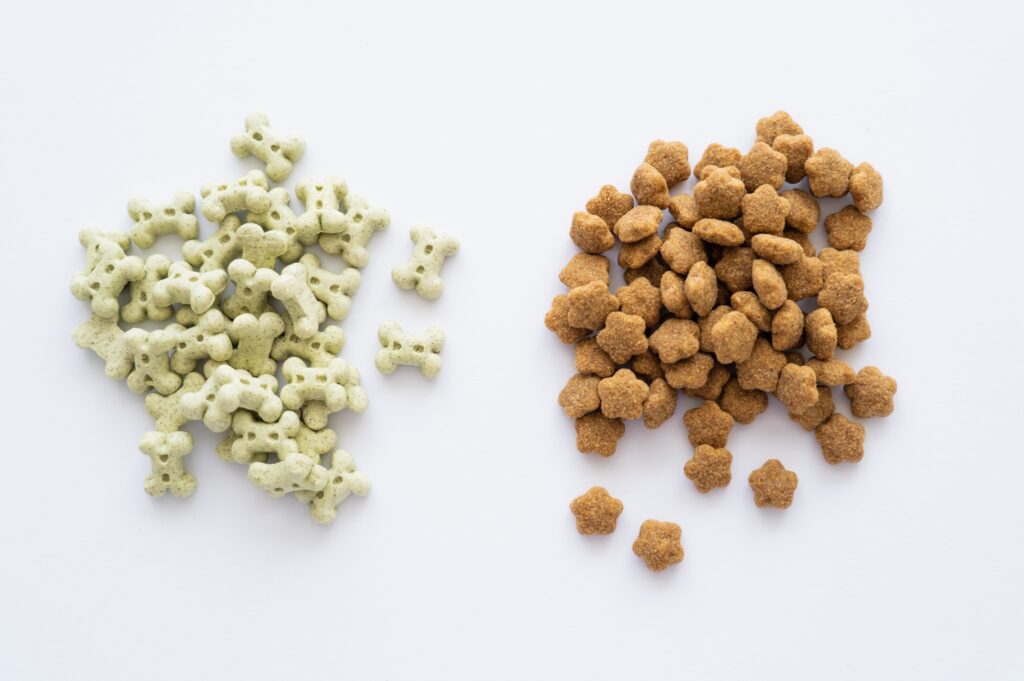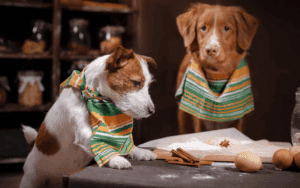Meta Description:
Explore how to succeed in Canada’s private label dog treats market with insights on sourcing, customization, and B2B trends. Tailored for wholesalers and pet retailers.
Introduction: Why Canada’s Private Label Dog Treat Market Is Booming
Private label pet products have exploded across Canada. With over 60% of Canadian households owning pets and the Canadian pet industry valued at over CAD 9 billion in 2024, dog owners are looking for healthy, affordable, and customizable treat options【1】. Retailers and wholesalers who offer private label dog treats are perfectly positioned to meet this growing demand while building brand loyalty and achieving better profit margins.
This guide explores how wholesalers, online retailers, and pet specialty stores can tap into the private label dog treats market in Canada—and why now is the perfect time to do so.

What Are Private Label Dog Treats?
Private label dog treats are products manufactured by a third-party supplier and sold under a retailer’s or distributor’s brand. This model gives wholesalers and retailers the opportunity to:
- Customize ingredients, flavors, shapes, and sizes
- Control pricing and packaging
- Avoid the high R&D costs of launching a brand from scratch
- Strengthen customer loyalty through exclusive branding
They’re also known as white label dog treats when the base formula is standard but packaging and branding are exclusive to the reseller.
Why Private Label Pet Treats Are in High Demand in Canada
1. Health-Conscious Consumers
Canadian pet owners increasingly seek treats that are:
- Grain-free
- Single-protein
- Limited ingredient
- Functional (for hips, digestion, skin, etc.)

Treats labeled with “Made in Canada”, sustainably sourced, or human-grade ingredients tend to perform better in premium pet channels【2】.
2. Cost-Effective Branding for Retailers
Whether you’re a major chain like Pet Valu or a smaller pet boutique in Vancouver or Toronto, offering private label pet treats means higher margins without the high cost of in-house production.
3. E-commerce Growth
Online retailers such as Amazon Canada and Walmart Marketplace are increasingly pushing private label listings. It’s easier than ever to launch your own dog treat brand with contract manufacturing and dropshipping options.
Key Market Stats You Should Know (2024–2025)
- The Canadian pet food and treat market is projected to hit CAD 10.5 billion by 2025【3】.
- Private label pet products grew over 14% year-over-year, outpacing major national brands【4】.
- The most in-demand private label treats in Canada are freeze-dried meats, training bites, and functional chews.
- Retailers offering Canadian-sourced and produced dog treats see higher repeat customer rates due to consumer trust in local manufacturing【5】.

What Types of Dog Treats Work Best in the Canadian Market?
Here are the bestselling formats among private label dog treats in Canada:
| Treat Type | Key Benefits | Notes for Customization |
|---|---|---|
| Freeze-Dried Treats | Long shelf life, 100% meat | Label as raw nutrition or single-ingredient |
| Functional Soft Chews | For joints, digestion, skin | Add branded supplements or probiotics |
| Dental Chews | Teeth-cleaning + flavor | Size customization helps target small vs large breeds |
| Limited-Ingredient Biscuits | Allergy-friendly | Gluten-free and grain-free options are popular |
| Novel Protein Treats | Duck, bison, salmon | Ideal for allergy-sensitive or picky eaters |
How to Start Selling Private Label Dog Treats in Canada
1. Define Your Brand and Audience
Are you targeting urban millennial pet parents? Or budget-conscious pet retailers? Your branding, packaging, and treat formulation should reflect your target.

2. Choose a Manufacturer You Can Trust
Look for a supplier with:
- CFIA (Canadian Food Inspection Agency) compliance
- GFSI certifications like BRC or IFS
- Experience in OEM and ODM private label projects
- Transparent sourcing and ingredient traceability
👉 Learn more about private label solutions at MatchwellPets.com
3. Select Your Treats and Packaging
Customize:
- Shapes and sizes
- Flavors and protein sources (beef, chicken, fish, etc.)
- Packaging: pouches, tubs, boxes with your branding
- Labels: bilingual (English and French), allergen-free, organic claims

4. Create a Strong Retail or Online Listing
Include:
- High-quality photos
- Nutritional claims
- Ingredient sourcing transparency
- Customer testimonials or feeding trial results
5. Launch with Confidence
Start with smaller MOQs if possible. Use promotions or bundling to boost sell-through.
Where to Source Private Label Dog Treats in Canada or Nearby
You can choose between domestic manufacturers or nearby U.S.-based exporters that serve Canada. Domestic production can appeal more to eco-conscious or “Buy Local” consumers.
Some reputable options:
- Matchwell (OEM/ODM, global certifications, extensive treat catalog) – matchwellpets.com
- North American pet treat co-manufacturers with bulk capabilities and CFIA export experience

When choosing a supplier, request:
- Sample packs
- Ingredient certifications
- Private label catalog with MOQ and pricing tiers
Private Label Regulations in Canada
To ensure compliance:
- Follow CFIA’s Food and Drug Regulations (FDR) for pet products
- Label must list guaranteed analysis, ingredients, feeding guide, and contact details
- Claims like “organic,” “human-grade,” or “veterinarian recommended” must be backed by data
See CFIA Guidelines for Pet Treats
Also consider if your products will be exported within North America under CUSMA trade rules (formerly NAFTA).

B2B Distribution Channels in Canada
To grow your private label dog treats brand, consider the following distribution models:
- Retail Chains: Pet Valu, Global Pet Foods, Ren’s Pets
- Online Marketplaces: Amazon.ca, Walmart.ca
- Grooming & Veterinary Clinics: Use custom-branded functional treats
- Boutiques & Local Pet Stores: Ideal for niche, premium formats
- Subscription Boxes: Partner with local or national services
Real Success Stories: Private Label in Action
- Canadian e-commerce brand scaled to 7-figure revenue selling private label liver treats through Amazon FBA and a Shopify store.
- Toronto-based boutique pet store doubled its profit margin by switching from national brands to private label soft chews in customized packaging.
Tips for Succeeding in the Canadian Private Label Market
✅ Focus on Transparency – Highlight traceability and quality certifications
✅ Offer Sample Packs – Especially for picky eaters or functional formulas
✅ Design Bilingual Labels – English and French for national reach
✅ Monitor Trends – Stay ahead with novel proteins, sustainability, or plant-based options
✅ Work with Manufacturers Offering R&D Support – Like Matchwell, which helps you develop unique, market-ready SKUs

Conclusion: The Time to Launch Your Private Label Dog Treat Brand in Canada Is Now
With rising pet ownership, health-conscious consumer behavior, and expanding e-commerce, the private label dog treat market in Canada is ripe with opportunity. Whether you’re a pet store, distributor, or Amazon seller, leveraging OEM/ODM partnerships with manufacturers like MatchwellPets.com can help you launch your brand faster, smarter, and with a clear competitive edge.
Helpful Resources:












